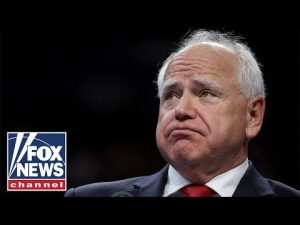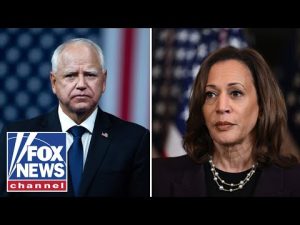**Title: Gender Standards in the Military: A Battle Over Statements and Service**
In recent congressional hearings, a heated debate emerged regarding the role of women and the LGBTQ community in the U.S. military. With the stakes high and many voices buzzing, one particular nominee for Secretary of Defense found themselves in hot water over controversial statements made about gender and service. The topic rallied defenders and critics alike, sparking a fierce conversation about morale, discipline, and representation in America’s armed forces.
The crux of the matter? Many believe the nominee’s previous remarks about women in combat have not only cast a long shadow over their reputation but have also undermined the hard work and dedication of countless service members. For instance, the nominee suggested that having women in combat units could dilute standards and called for a reassessment of their involvement. This stance hit hard, especially considering that hundreds of women currently serve effectively in infantry roles. Critics pointed out the need for respect towards those women who bravely put on the uniform and are actively working in high-stakes environments.
As the discussion deepened, attention was drawn to the broader implications of the nominee’s statements on military cohesion and morale. It was asserted that when leading figures in military leadership make disparaging comments about any group within the ranks, it can create an atmosphere of division, hindering the very fabric of teamwork essential in military operations. With over three million personnel under this position’s potential influence, the concern is not just about individual beliefs but the overall morale of active-duty service members.
The debate did not stop at gender. The treatment of LGBTQ service members also came under scrutiny. Many service members voiced fears that the nominee’s negative commentary could reflect broader attitudes toward those with diverse sexual identities, raising alarms about whether everyone could serve without prejudice. The notion that personal identity should not dictate a person’s ability to serve in the military was echoed by many, as were calls to leave politics out of the Department of Defense. Instead, the focus should be on capability and preparedness, not personal life choices.
A humorous yet poignant point brought attention to the assumption that motherhood could be a disqualifying factor for military service. Jabs about the differences in capability post-motherhood, perceived as an outdated stereotype, left many shaking their heads. After all, how could bringing life into the world equate to a diminished ability to serve one’s country? The conversation around motherhood seemed to highlight an ironic twist, suggesting that mothers couldn’t possibly be lethal, further complicating the menace of misconceptions in the military and society at large.
In the end, as positions were debated, it became clear that the intersection of gender, identity, and military service continues to develop. The nominee’s journey through this storm of scrutiny will surely serve as a pivot point for how service members of all backgrounds are regarded. The military thrives when every member feels respected and valued, regardless of gender or personal identity. Therefore, moving forward, one hopes for a more inclusive atmosphere in which all who wish to serve can do so without fear of bias or discrimination—after all, they’re all in this together, fighting for the same flag.







